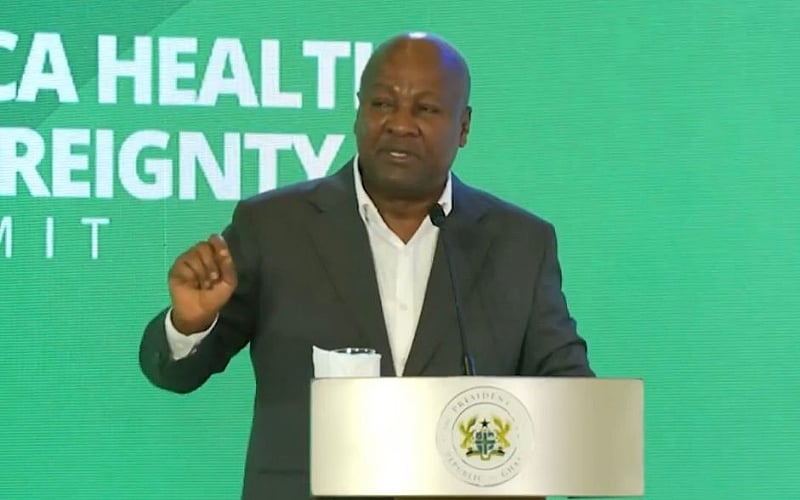President John Dramani Mahama’s call for African health sovereignty resonates with a growing sentiment across the continent: a desire to move beyond dependency and shape healthcare systems that truly reflect African needs and priorities. His address at the Africa Health Sovereignty Summit in Accra underscored the urgent need for Africa to transition from being a passive recipient of global health initiatives to becoming the architect of its own health destiny. This shift requires a fundamental rethinking of global health governance, placing African leadership and agency at the forefront. Mahama’s vision encapsulates a paradigm shift where Africa dictates its health agenda, leveraging its resources and expertise to build resilient and sustainable health systems that cater to the continent’s unique challenges and opportunities.
The summit, themed “African Health Sovereignty in a Reimagined Global Health Governance Architecture,” served as a pivotal platform for African leaders, health experts, and global partners to collectively envision a future where Africa’s voice and priorities are central to global health discussions. The prevailing sentiment was that Africa’s reliance on external funding and pre-defined programs has often resulted in misaligned priorities and unsustainable solutions. The summit aimed to dismantle this existing structure and replace it with a framework that empowers African nations to take ownership of their health trajectories. The discussions centered on developing concrete strategies for strengthening health systems, promoting local manufacturing of pharmaceuticals and medical equipment, and fostering research and innovation tailored to African contexts.
Mahama’s announcement of two significant initiatives – the formation of a Presidential High-Level Task Force on Global Health Governance and the launch of the SUSTAIN Initiative – signals a concrete commitment to translating this vision into action. The task force will play a crucial role in developing a new global health governance framework that prioritizes African agency and ensures that international collaborations are equitable and truly beneficial to the continent. The SUSTAIN Initiative, standing for Strengthening Uganda’s and Sub-Saharan Africa’s Investments Toward National health, represents a bold, African-led platform designed to align national budgets with health priorities, fostering cross-border learning, innovation, and accountability. This initiative aims to mobilize domestic resources and optimize their allocation to address critical health challenges, reducing reliance on external funding and promoting sustainable health financing.
The summit’s overarching goal was to chart a path toward health sovereignty, empowering African nations to design and implement health systems that are responsive to their specific needs and priorities. This includes strengthening primary healthcare, investing in healthcare infrastructure, training and retaining healthcare professionals, and promoting community health programs. The emphasis on local ownership is crucial for ensuring that health interventions are culturally appropriate, sustainable, and effectively address the diverse health challenges faced by different African countries. The summit participants recognized that health sovereignty is not about isolation but about engaging with global partners on equal footing, ensuring that collaborations are mutually beneficial and contribute to Africa’s long-term health goals.
Key outcomes of the summit include the establishment of a Presidential High-Level Panel tasked with developing a new global health governance framework. This panel will play a crucial role in articulating Africa’s vision for global health cooperation and advocating for reforms that give African nations a greater voice in shaping global health policies and priorities. The Accra Compact, endorsed at the summit, serves as a unified continental vision for health sovereignty and equitable health partnerships. This document outlines key principles and commitments for achieving health sovereignty, including increased domestic investment in health, strengthened regional collaboration, and the establishment of a robust pharmaceutical manufacturing capacity within Africa.
The Africa Health Sovereignty Summit marks a turning point in the continent’s approach to healthcare. It signifies a collective determination to move beyond dependency and take control of Africa’s health future. The initiatives launched at the summit, coupled with the renewed commitment to African leadership and ownership, lay the foundation for a transformative journey toward building resilient, sustainable, and equitable health systems that truly serve the needs of African populations. The summit’s success hinges on the continued commitment of African leaders, the active engagement of civil society organizations, and the establishment of genuine partnerships with global stakeholders who respect Africa’s agency and prioritize its health needs.


